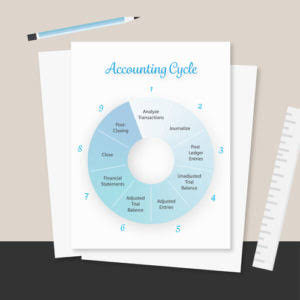
They should have extensive experience in bookkeeping and be proficient in accounting software such as QuickBooks or Xero. Knowledge of payroll processing, accounts payable and receivable, and financial statement preparation is essential. We are looking to hire an experienced full charge bookkeeper to handle our company’s accounts. In this role you will be responsible for managing the full cycle of accounting duties for the company. This includes entering vendor and expense invoices, billing customers, preparing bank statements, processing timesheets, and preparing tax returns.

Ensuring Compliance with Financial Regulations
By staying updated with tax regulations, bookkeepers can accurately calculate and record tax liabilities, what is a full charge bookkeeper prepare tax returns, and assist in tax planning. They must be knowledgeable about deductions, credits, and exemptions to help businesses minimize their tax burden while staying compliant with the law. As a full charge bookkeeper, you assist with budgeting and forecasting processes. This involves collaborating with management to develop realistic budgets, monitoring actual performance against budgeted targets, and providing financial insights to support decision-making. By actively participating in the budgeting and forecasting process, you contribute to the company’s financial planning and help ensure financial goals are met.
D. Bank Reconciliation and Accuracy:
- Maintaining the general ledger is another essential aspect of your role as a full charge bookkeeper.
- A full-charge bookkeeper is a key person who takes care of all the bookkeeping tasks.
- Let’s get started with the basics about full charge bookkeepers by taking a look at a simple description and popular job titles.
- No matter how much bookkeeping and accounting duties might differ, a full service bookkeeping job combines some features of both.
- Use our FREE Full Charge Bookkeeper Job Description Template as a starting point and follow the instructions.
- Read on for insight into the industries where the highest concentration of jobs for full charge bookkeepers can be found.
Full-charge bookkeepers usually earn between $35,904 and $76,000 per year, and their median annual salary is around $59,429. After creating a job ad, you can easily post it to 50+ job boards with our software. AvaHR Software How to Run Payroll for Restaurants is a terrific method to make your hiring process go more smoothly. Use our FREE Full Charge Bookkeeper Job Description Template as a starting point and follow the instructions.

Full Charge Bookkeepers vs. In-House Bookkeepers
This allows you to carry out your bookkeeping duties, such as managing accounts payable and receivable, maintaining the general ledger, and reconciling bank statements. With the availability of these resources, you can easily access financial records, analyze data, and generate reports. During their previous roles, bookkeepers gain hands-on experience in managing financial records, preparing financial statements, and reconciling accounts.
What are the duties of a bookkeeper?
Our accounting department is looking for a detail-oriented and experienced candidate to join us as a Full Charge Bookkeeper. They may or may not supervise clerks or assistants, depending on the size of the business. To get one, you’ll have to have at least two years of professional experience in the field and pass the exam.

Her postgraduate degree in computer management fuels her comprehensive analysis and exploration of tech topics. In our recent survey, recruiters told us that resume search is the top tool they use to find the best candidates. Post your resume today to ensure recruiters and hiring managers can easily find you. He or she can help the business owner understand their financial situation and make sure their finances are in order. Accounting is also very important when it comes to taxes, since these finances may be used to determine whether or not the business should be taxed at all. The accountant is responsible for filings, accounts and financial statements.
- We value our readers’ insights and encourage feedback, corrections, and questions to maintain the highest level of accuracy and relevance.
- However, the phrase ‘possessing exceptional skills and knowledge of bookkeeping best practices’ could be seen as overly general and subjective.
- One of your primary responsibilities as a full charge bookkeeper is managing accounts payable and receivable.
- As a full charge bookkeeper, you are also involved in conducting financial analysis.
Your dedication and expertise in this field can open doors to various career opportunities, such as senior bookkeeper, financial analyst, or even a certified public accountant (CPA). So, keep expanding your knowledge and honing your skills to excel in this rewarding profession. Compliance with income summary financial regulations is of utmost importance for any organization, and as a full charge bookkeeper, you have the responsibility to ensure adherence to these regulations. This includes staying updated on financial laws, regulations, and reporting requirements. By maintaining compliance, you help mitigate financial risks, avoid penalties, and uphold the company’s reputation. Employees in this position can work in small offices or companies where they won’t have any other employees to supervise.
This involves tracking all cash inflows and outflows, ensuring sufficient funds are available to meet the company’s financial obligations, and identifying potential cash flow issues. By effectively monitoring cash flow, you help the company maintain financial stability and make strategic decisions to optimize cash utilization. To ensure the accuracy of financial records, you are responsible for reconciling bank statements. This involves comparing the transactions recorded in the company’s books with the bank statement to identify any discrepancies.
Ready to Start Hiring?

By accurately updating the general ledger, you provide a comprehensive overview of the company’s financial position, which is crucial for decision-making and financial reporting. Nearly all bookkeepers working with this level of responsibility also need to have management training. They must also be familiar with accounting software and how to prepare and present financial statements and tax returns. Full charge bookkeepers, on the other hand, are able to analyze financial statements, offer consulting services, and do some internal auditing and tax preparation. However, as they are not certified public accountants, the company would often need to consult a certified public accountant for external audits and tax returns.
They handle daily financial tasks, offer a personalized approach, and understand your financial situation deeply. This choice gives you direct control over bookkeeping and leads to a more customized service. Choosing between an in-house bookkeeper and outsourcing your full-charge bookkeeping services is crucial for your business.
